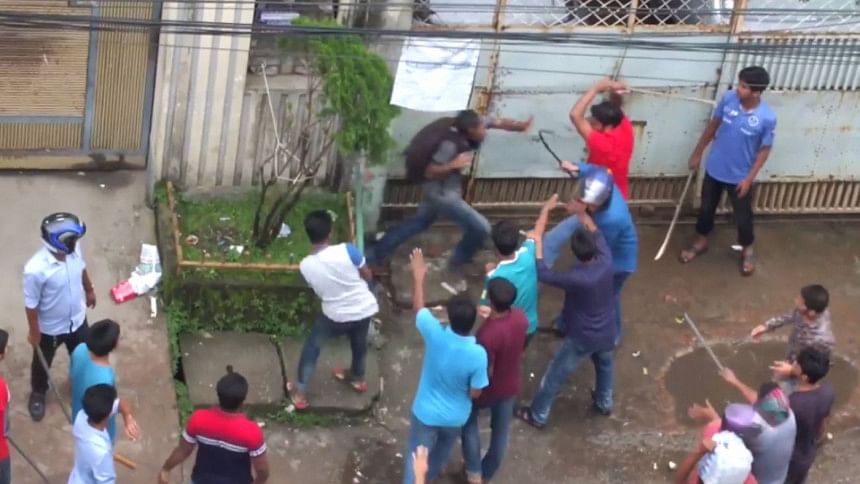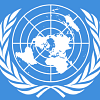The price of exposing truth is getting costlier than ever

Today is the fifth anniversary of the UN recognising November 2 as the International Day to End Impunity for Crimes against Journalists. Incidentally, data shows that this year has been one of the deadliest for journalists out of the last five years, if not longer. And those who have attacked journalists have done so with an impunity that remains unmatched in recent history.
According to the International Press Institute, as many as 100 journalists have been killed worldwide since September 2017. Some of these murders were quite sensational and thus gathered large-scale media and public attention, while others, unfortunately, failed to garner as much coverage. But apart from the murder of journalists, there have been many other forms of violence against them throughout the world in the last one year.
In its "Global Impunity Index 2018: Getting Away With Murder", the Committee to Protect Journalists highlighted 14 countries where impunity for crimes against journalists has become "entrenched". While most of these countries have been mired in one form of conflict or another, such as Somalia, Syria, Iraq, South Sudan, Afghanistan, etc., what is shocking is that Bangladesh too has managed to get on that list. And not only Bangladesh, but India and Pakistan too are on the list, which perhaps shows the real state of protection afforded to journalists by governments in South Asia in general.
However, the fact that Bangladesh is on the list despite not being a country currently going through a war or a major conflict wouldn't come as a great surprise to those who had witnessed the events that unfolded during the recent student movement for safe roads. During that time, according to Reporters Without Borders (RSF), as many as 30 journalists "were the targets of deliberate violence" for covering the "wave of student protests in Dhaka." These included direct physical attacks "by pro-government activists armed with steel bars or sticks," where the worst injuries were sustained by "Associated Press photographer AM Ahad, Palash Shikder of Dainik Banik and freelance photographer Rahat Karim." Others assaulted include "Channel-i reporter Samia Rahman, bdnews24.com photographer Mahmud Zaman Ovi, Dainik Janakantha's Ibnul Asaf Jawed, a reporter for the US-based Zuma Press known as Rimon, and photojournalism student Enamul Hasan" and many more. Then there was the "vandalising" of journalists' "vehicles and camera" to prevent them from covering the attacks and police passivity in the face of it, as well as sexual assault on at least one female journalist for "filming a pro-government demonstration."
I happened to be one of the witnesses to these disgraceful events, and a number of journalists working for The Daily Star, including one who was "attacked with a stick and then handed over to the police and detained by them" for hours simply for taking photographs, were also the victims of such senseless violence and are still awaiting justice. Since then, despite widespread protests by journalists and activists, the government has failed to take any meaningful steps to bring those responsible for the attacks to account. Even after the information minister had acknowledged the attacks and wrote a letter to the home minister, not a single case of the attacks has, unfortunately, been followed up to our knowledge which, again, shows the sheer scale of impunity that has been given to those responsible for committing violence against journalists.
In fact, one individual who was detained is photojournalist Shahidul Alam who, according to RSF, is a victim himself. He is still languishing in jail after the incident of his arrest, despite calls from hundreds, if not more, of academics from around the world, Nobel laureates, intellectuals and authors including the likes of the great Noam Chomsky, calling for his release.
Yet, one could look at this grim picture in our own country as being, to some extent, the mirror image of what is currently happening worldwide in an age when an increasing number of governments and intelligence agencies in countries considered to be the freest in the world, consider investigative journalists as the greatest threat to national security above all others, including terrorists, as per their own admissions.
One such country that I am referring to, of course, is the UK—at the heart of which the Editor-in-Chief of Wikileaks, Julian Assange, remains "arbitrarily detained" as per two UN rulings for seven years without charge. Whose political refuge in the Ecuadorian embassy in London, thanks to the actions of the newly elected Ecuadorian President Lenin Moreno, now "looks more and more like solitary confinement"—equivalent to torture—according to the General Counsel at the Human Rights Watch.
Speaking of Wikileaks, this year also saw the violent murder of Malta's most famous investigative journalist, sometimes referred to as Malta's "One-Woman Wikileaks", Daphne Caruana Galizia. We also cannot forget about the murders of Bulgarian journalist Viktoria Marinova, Slovakian investigative journalist Ján Kuciak—who was covering high-level corruption cases, including alleged links between organised crime and top Slovak politicians—and his girlfriend, Indian journalist Gauri Lankesh, Saudi Arabian journalist Jamal Khashoggi and many others, who simply refused to shut up and let crime and corruption reign freely.
Because similar to what Julian Assange said, they too believed that "One of the best ways to achieve justice is to expose injustice." Which is what they did till the very end, in spite of little support.
And the journalists who are still standing and fighting to expose injustice today, also seem to be doing so with little support and, in fact, amidst increasing criticism and growing condemnation, especially from politicians and members of the government. Perhaps because, as Edward Snowden had said, "Those who have never risked anything want nothing more than to criticise those who risk everything."
The question for everyone else, however, remains that as these people who are exposing injustice are slowly being silenced and removed one by one, who will expose the injustice that is eventually done to you? And, when those "who are risking their everything" to expose injustice themselves are subjected to the greatest of injustices, is your silence all what they truly deserve?
Eresh Omar Jamal is a member of the editorial team at The Daily Star. His Twitter handle is @EreshOmarJamal.

 For all latest news, follow The Daily Star's Google News channel.
For all latest news, follow The Daily Star's Google News channel. 







Comments